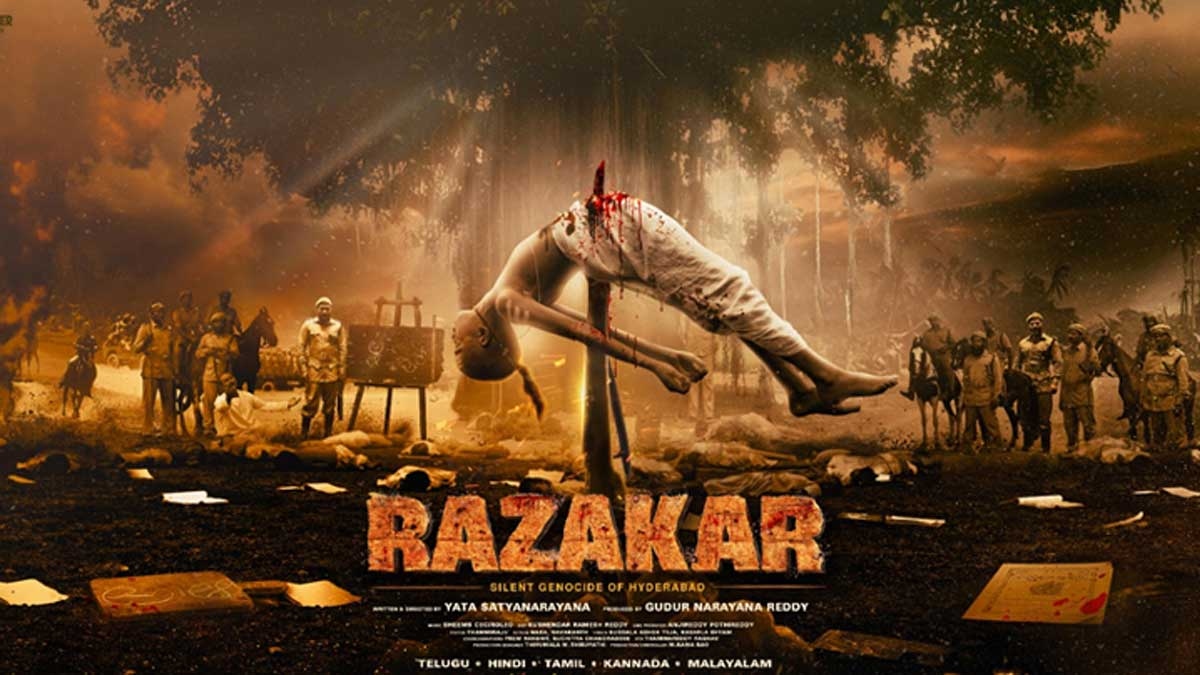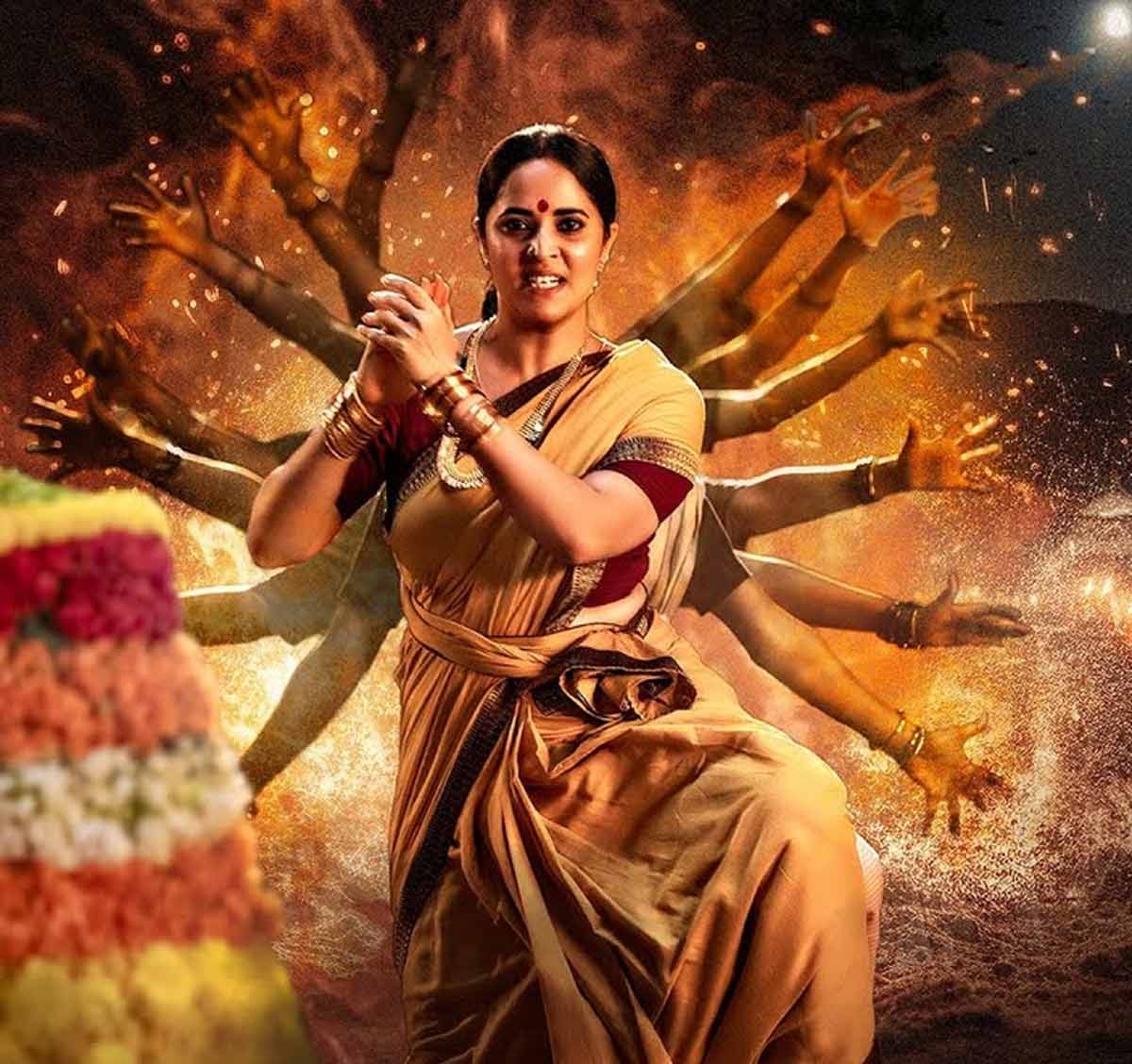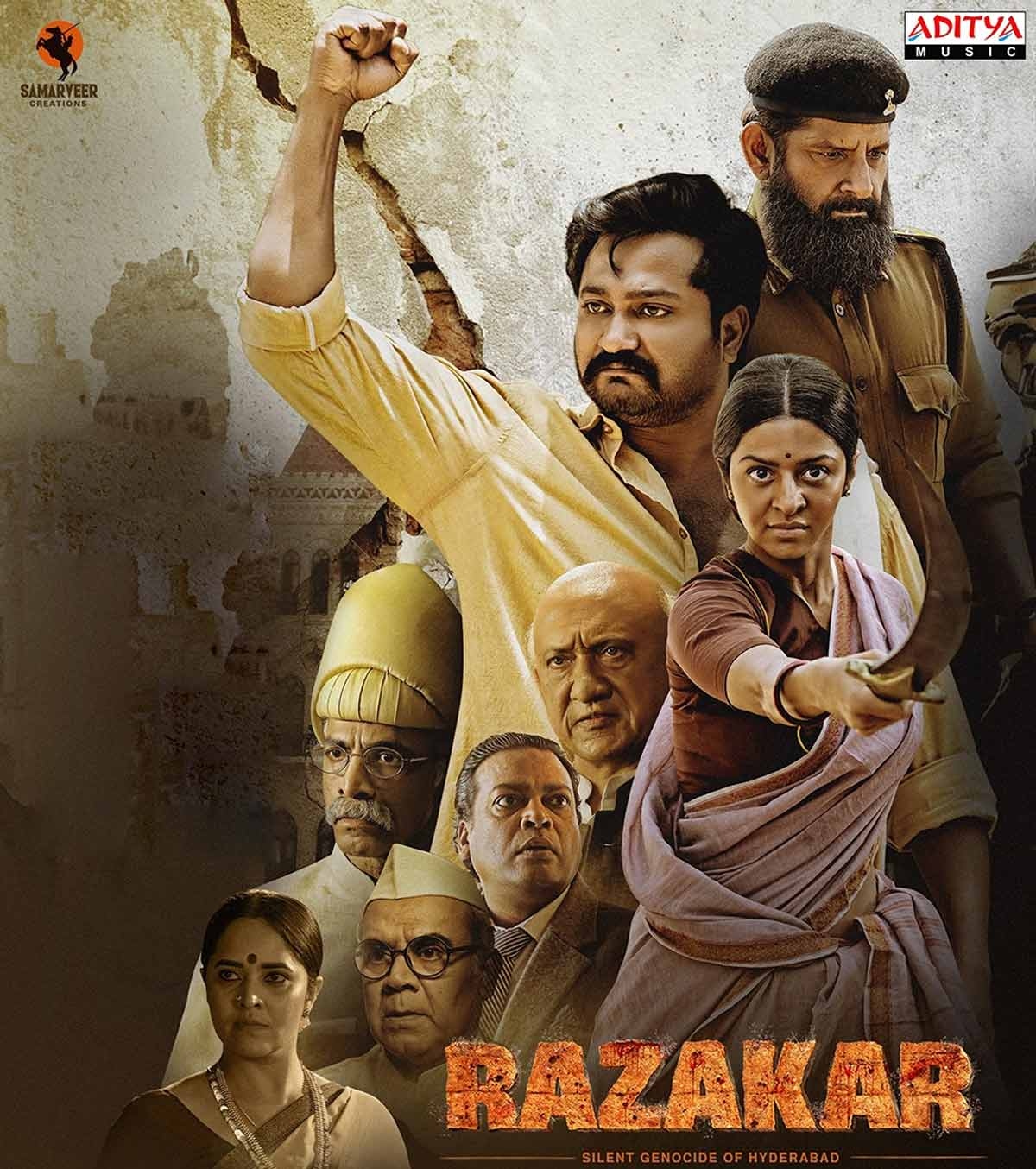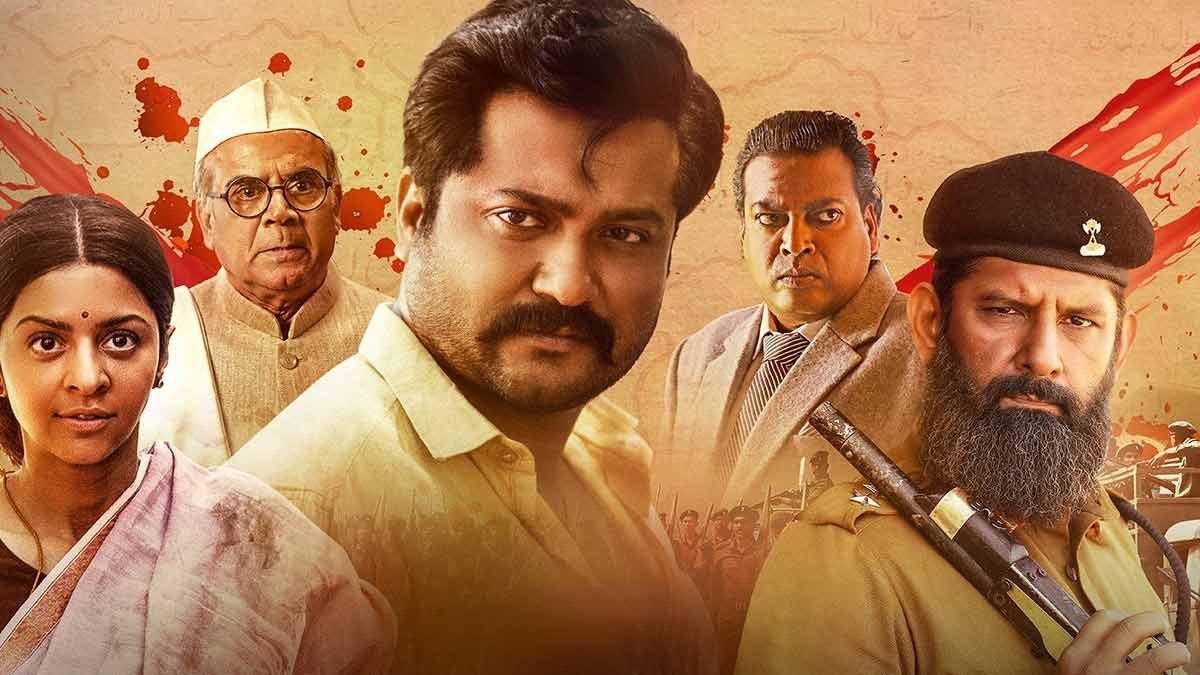Razakar review.Razakar Bollywood Movie Review, Story, Rating

Razakar focuses on the 1948 Hyderabad liberation movement. He captures the struggle of Andhra in its early years of independence to regain religion and identity in the face of military and political repression.He captures the struggle of the state of Pradesh and its people. This is the story of those who rose up in the state of Hyderabad against the tyranny of the Nizam and the anarchy of the Razakars before September 17, 1948.
Story:
The British partition of India into India and Pakistan gave the princely states the choice of which country to join. Most states decided to become independent, but Kashmir and Hyderabad chose independence. The Nizam of Hyderabad signed a cease and desist agreement with India, aiming to turn his state into a Turkestan similar to Pakistan.
Driven by religious fanaticism, the Nizam (Makarand Deshpande) uses his aide Qasim Rizwi (Raj Arjun) and his private army Razakars to convert the majority Hindus to Muslims within a one-year pact. I made a plan to convert them. This oppressive move sparked a rebellion led by Raj Reddy (Bobby Sinha), Shantavva (Vedika), Potyavva (Anasuya), Chakali Airamma (Indraja) and others.

As the situation escalates, Union Home Minister Sardar Patel (Tej Sapru) dispatches Munshi Munshi (Thalaivasar Vijay) to Hyderabad to assess the situation firsthand. However, Prime Minister Nehru’s reluctance and the Nizam’s aggressive plans to obtain arms from Germany and Pakistan further complicated the situation.
The story reveals whether Sardar Patel takes decisive action amidst Nehru’s hesitation and Nizam’s aggressiveness, leading to important historical events.
analysis:
Raj Arjun gave a chilling portrayal of Qasim Rizvi and was a formidable on-screen presence. His facial expressions, speech expressions, and body language embody a ruthless, bloodthirsty character that left a lasting impact. Union Home Minister Sardar Patel played by Tej Sapru was admirable, with strong body language and befitting personality. Thalaivasar Vijay played KM Munshi convincingly and added depth to his character.

Anasuya, Indraja and Vedika gave exceptional performances as Potyavva, Chakali Airamma and Shantavva respectively. Their roles were impactful, dominating the screen with their presence and delivering dialogue that sent shivers down viewers’ spines. Bobby Sinha’s appearance in the second half had an impact and added even more power to the story. The rest of the cast made great contributions to the story with their intense dialogue and brought the story to life.
Director Yata Satyanarayana set out on a mission to expose the atrocities and genocide committed by Qasim Rizwi’s army during the Nizam regime. This is a dark chapter in Hyderabad’s history that successive governments and political parties have chosen to keep hidden for political gain. Since the story is historical, it was shown without hesitation and the brutality of Rizwi and the Nizam regime was shown on screen. From start to finish, the film highlights the brutal massacre of Hindus under the Nizam, which led Union Home Minister Sardar Patel to rebel against Prime Minister Nehru and order Operation Polo to liberate the state of Hyderabad. This became an important factor.
The script had a sense of speed, the direction was accurate, and the powerful scenes left a strong impact on the audience. The dialogue was intense and impactful, and resonated with viewers. The film featured many intense scenes and dialogues that evoked strong emotions in the audience. The first half focuses on the Nizam’s atrocities with a small rebellion, while the second half depicts a more intense and widespread rebellion culminating in the events during Operation Polo.

Tamiraju’s editing was commendable and kept the story flowing smoothly despite occasional pacing issues. Kushender Ramesh Reddy’s cinematography captured the historical events in a realistic and impactful manner and effectively conveyed the emotions of the characters. Beams Ceciloleo’s songs were lively and situational, adding value to the story, and his background score enhanced the scenes and enhanced the viewing experience. The film’s production values were impressive and contributed to its overall impact.
verdict:
Yata Satyanarayana’s Razakaar is a commendable and bold attempt to portray the brutal reality of Nizam rule. The director should be commended for daring to tell a story like this, and the producers should be commended for fully supporting this endeavor despite the potential political controversy. Yata Satyanarayana skillfully brings out the best performances from the cast and crew to create a powerful and impactful film.
(Tag Translate) Razakar Review




